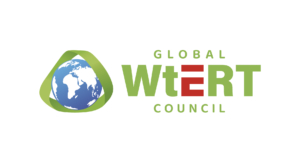M.S. Thesis: Greening Waste: Anaerobic Digestion for Treating the Organic Fraction of Municipal Solid Wastes
By Karena Ostrem
Advisor: Prof. Nickolas J. Themelis
Department of Earth and Environmental Engineering
Fu Foundation School of Engineering & Applied Science
Columbia University
May 2004
Anaerobic digestion (AD) has the opportunity to be an integral part of the solution to two of the most pressing environmental concerns of urban centers: waste management and renewable energy. Through AD, organics are decomposed by specialized bacteria in an oxygen-depleted environment to produce biogas and a stable solid. Each of these products can be used for beneficial purposes to close the loop in organic waste management. The biogas, which consists of up to 65% methane, can be combusted in a cogeneration unit and produce green energy. The solid digestate can be used as an organic soil amendment. As a waste management strategy employed in over 20 countries, AD has been successful in reducing the volume of waste going to landfill, decreasing emissions of greenhouse gases and creating organic fertilizer, all at a profit. Despite global success, the United States has not employed AD on a large scale, and nowhere is it used to treat MSW. This paper outlines the processes of AD, reviews the current technology available and proposes the adoption of the technology in the United States, beginning with commercial waste in New York City. The greatest concerns for New York are space and transportation, indicating that the most appropriate system is one using high solids located near the site of waste generation. Therefore, the Hunt’s Point Market in the Bronx is an ideal location for a demonstration facility for AD. This plant will improve local environmental conditions, create jobs, and generate electricity. For the plant to be economically viable, public policy must proactively support AD.
